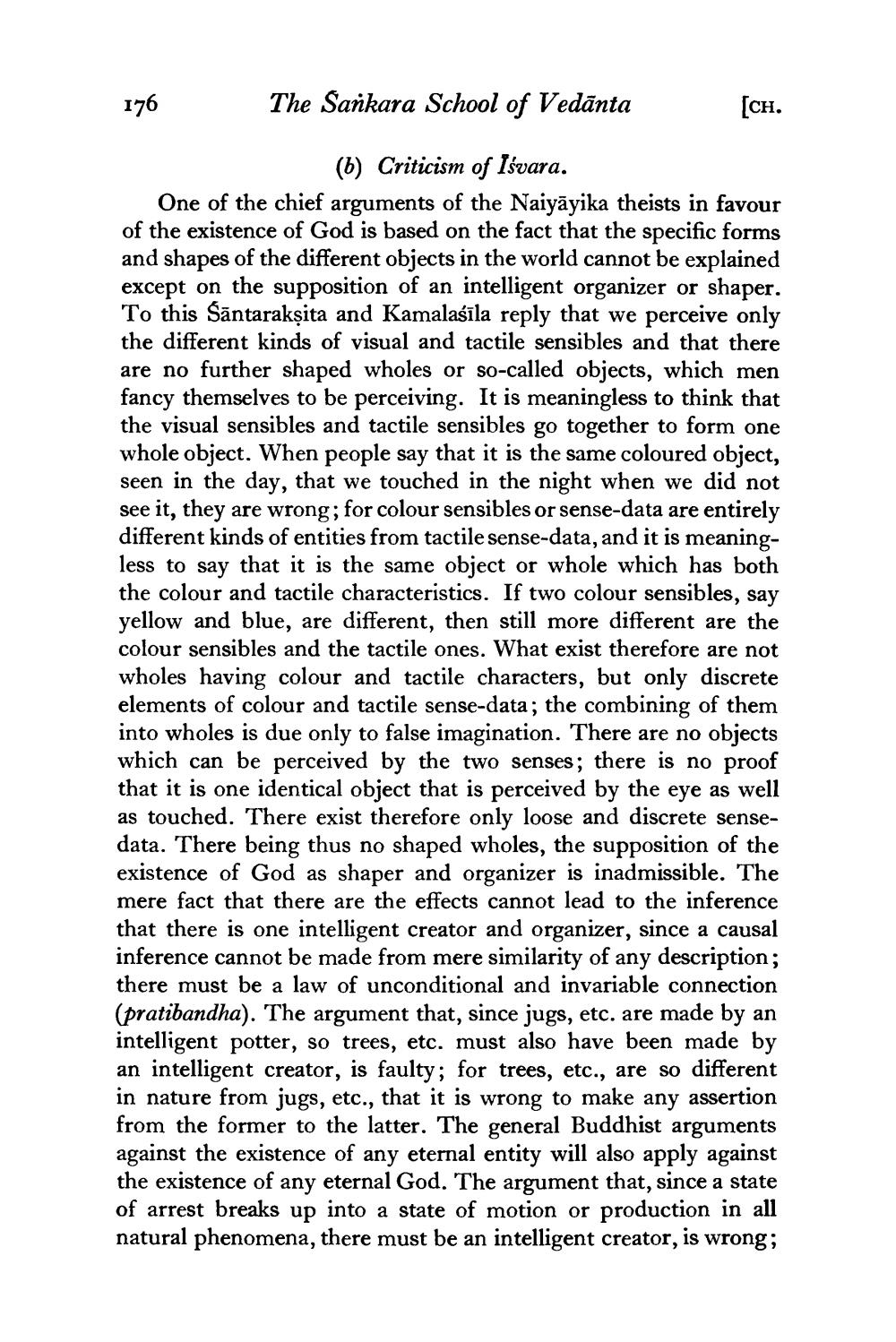________________
The Sankara School of Vedanta
(b) Criticism of Isvara.
One of the chief arguments of the Naiyayika theists in favour of the existence of God is based on the fact that the specific forms and shapes of the different objects in the world cannot be explained except on the supposition of an intelligent organizer or shaper. To this Santarakṣita and Kamalaśīla reply that we perceive only the different kinds of visual and tactile sensibles and that there are no further shaped wholes or so-called objects, which men fancy themselves to be perceiving. It is meaningless to think that the visual sensibles and tactile sensibles go together to form one whole object. When people say that it is the same coloured object, seen in the day, that we touched in the night when we did not see it, they are wrong; for colour sensibles or sense-data are entirely different kinds of entities from tactile sense-data, and it is meaningless to say that it is the same object or whole which has both the colour and tactile characteristics. If two colour sensibles, say yellow and blue, are different, then still more different are the colour sensibles and the tactile ones. What exist therefore are not wholes having colour and tactile characters, but only discrete elements of colour and tactile sense-data; the combining of them into wholes is due only to false imagination. There are no objects which can be perceived by the two senses; there is no proof that it is one identical object that is perceived by the eye as well as touched. There exist therefore only loose and discrete sensedata. There being thus no shaped wholes, the supposition of the existence of God as shaper and organizer is inadmissible. The mere fact that there are the effects cannot lead to the inference that there is one intelligent creator and organizer, since a causal inference cannot be made from mere similarity of any description; there must be a law of unconditional and invariable connection (pratibandha). The argument that, since jugs, etc. are made by an intelligent potter, so trees, etc. must also have been made by an intelligent creator, is faulty; for trees, etc., are so different in nature from jugs, etc., that it is wrong to make any assertion from the former to the latter. The general Buddhist arguments against the existence of any eternal entity will also apply against the existence of any eternal God. The argument that, since a state of arrest breaks up into a state of motion or production in all natural phenomena, there must be an intelligent creator, is wrong;
176
[CH.




